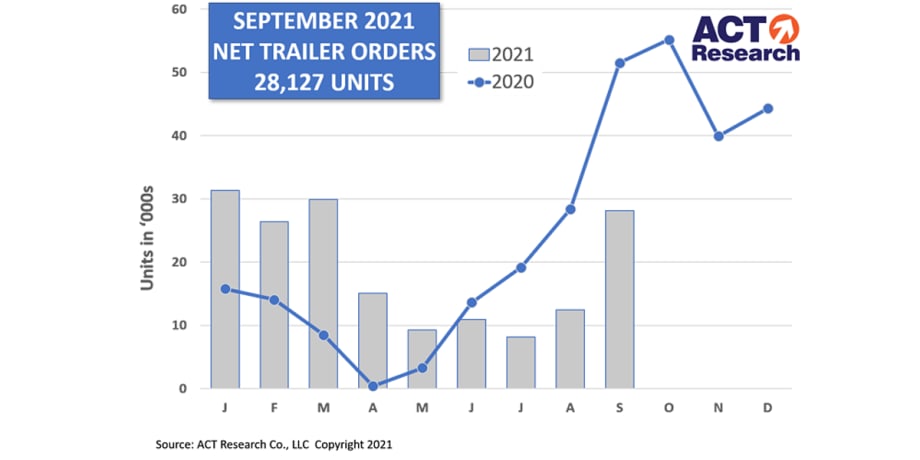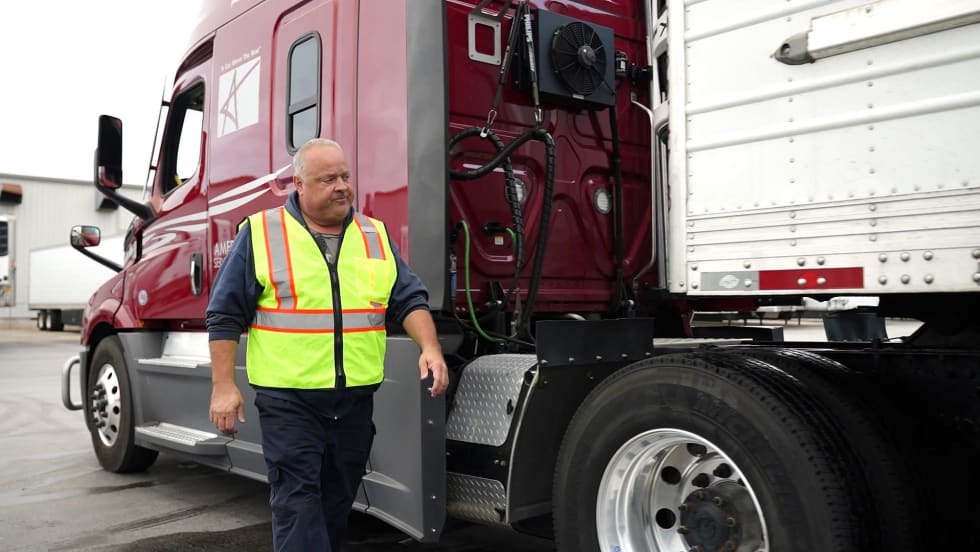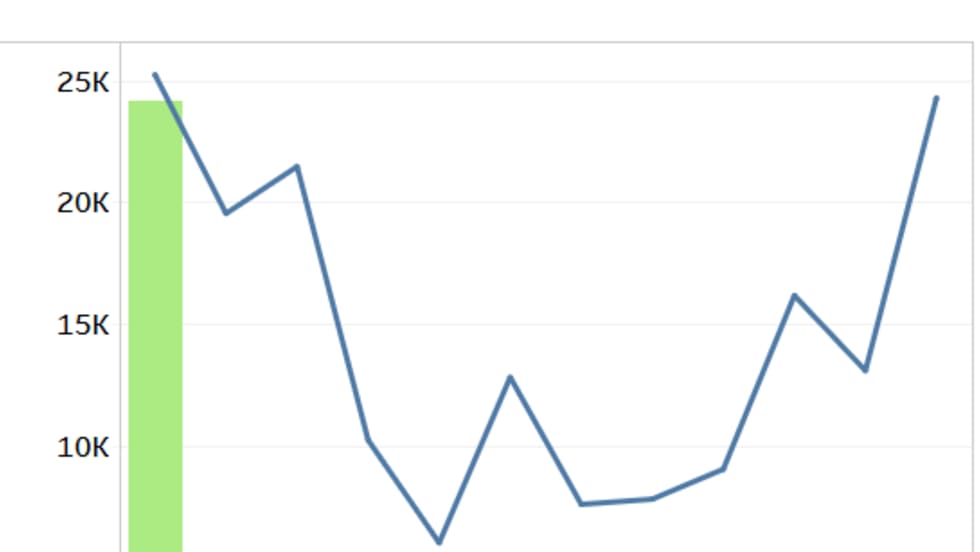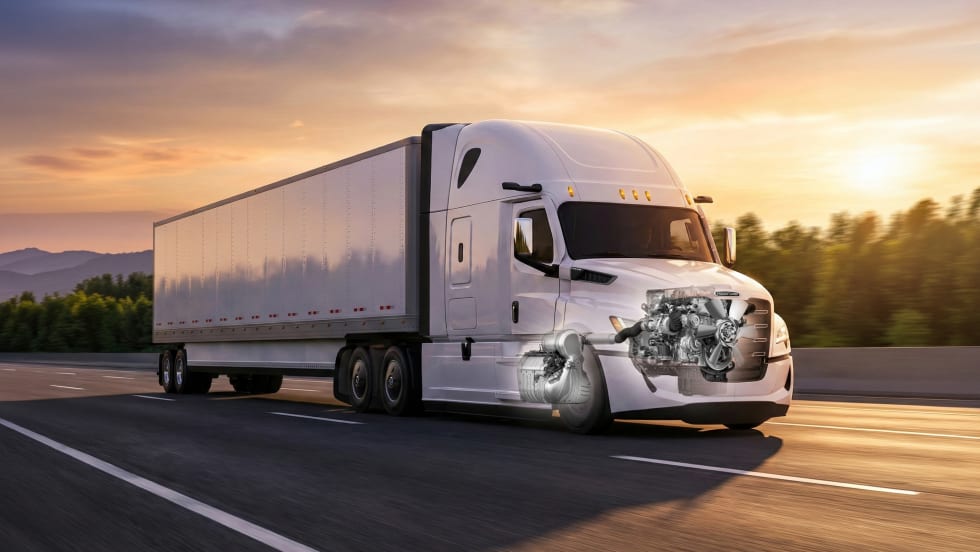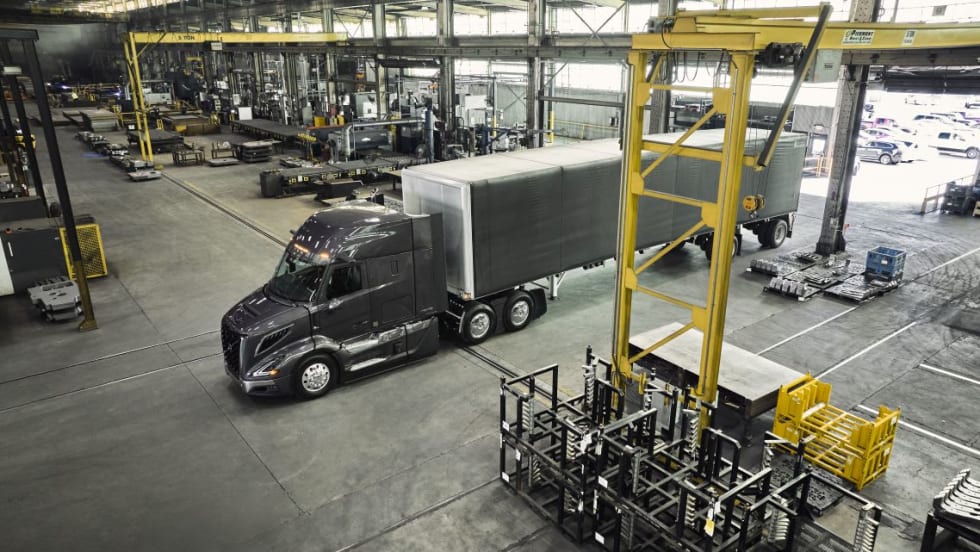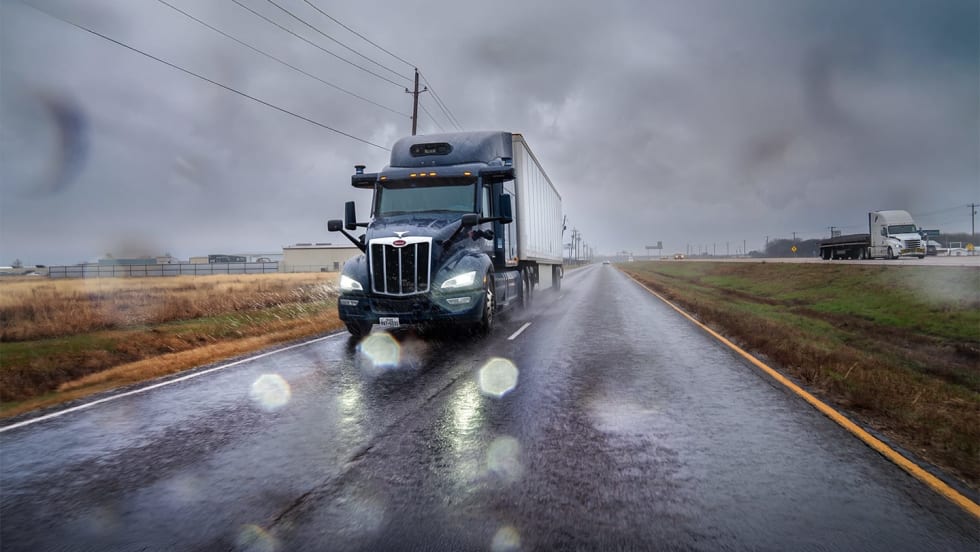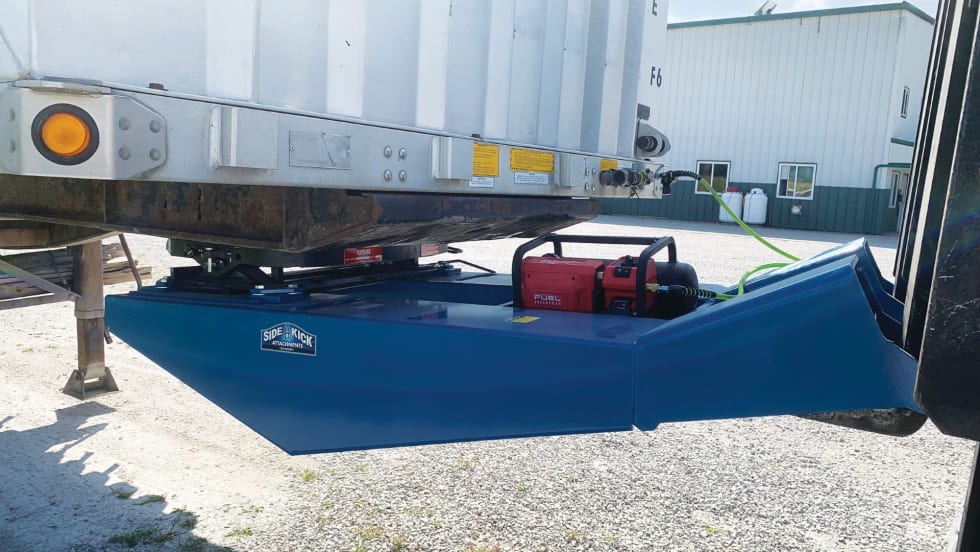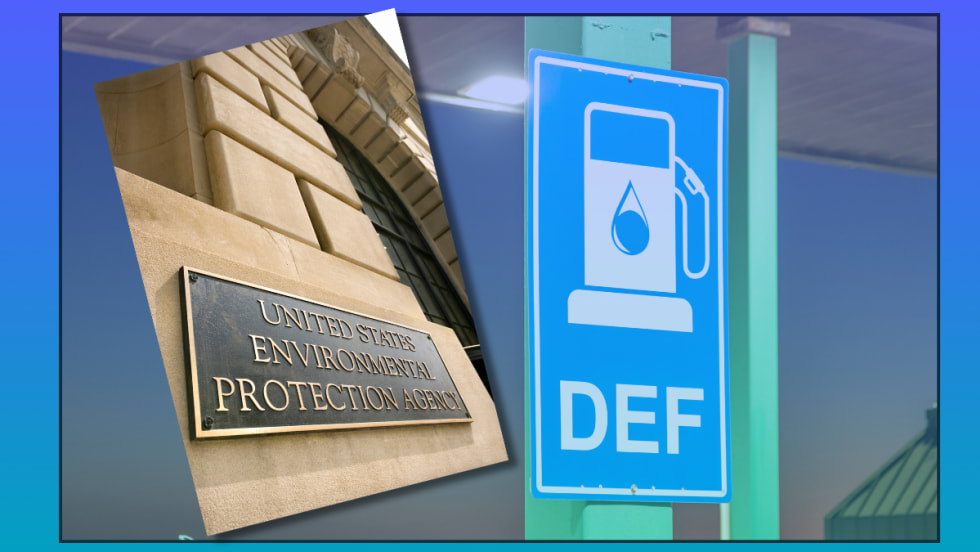In September, trailer orders improved over 100% month-over-month to between 28,127 and 28,300 units, ACT Research and FTR reported, respectively. The growth is attributed to a few large fleets sending in 2022 requirements.
Most OEMs entered few orders for 2022 due to uncertainties involving production capacity, supply chain performance, high commodity prices, and labor force supply entering 2022, FTR officials said. Many OEMs still have unfilled orders from 2021 that will roll into the first quarter of 2022 and this makes production planning difficult. Orders will surge when OEMs are more confident about future manufacturing condition, FTR reported.
Compared to the same month last year, September orders were more than 45% lower.
“September total net trailer orders grew mainly as the result of a 268% month-over-month surge in dry van orders for the month, as some 2022 orderbooks were very cautiously cracked open,” said Frank Maly, director of commercial vehicle transportation analysis and research at ACT Research, in a press release. “It appears that OEMs are being extremely careful regarding acceptance of additional orders, although the caution is more centered in the higher-volume dry van, reefer, and flatbed categories.”
Trailer orders now total 316,000 units over the past 12 months, according to FTR.
“The supply chain bottlenecks which hampered production throughout 2021 will, unfortunately, continue into 2022,” said Don Ake, FTR vice president of commercial vehicles. “Trailer OEMs are facing shortages of over two dozen components including steel, aluminum, rubber products, wood flooring, wiring harnesses, and plastic parts, etc. The supply chain is now expected to improve only at a modest pace throughout 2022.”
Ake added: “Fleets are desperate for new trailers. There are reports from the field of trailers breaking down because they are being run for an extended time due to the shortage of new trailers. The pent-up demand is growing every month, so when the trailer OEMs are finally able to ramp up production, they will be under pressure to produce at elevated rates for an extended time.”




